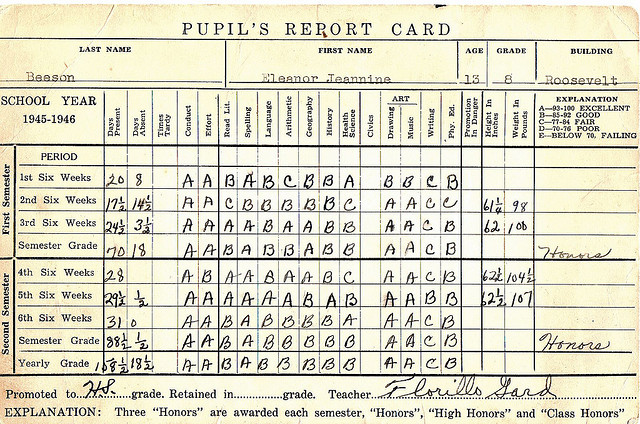A typical autumnal evening, still early in the St Jude’s school year. It’s dark outside; chill. The leaves have long-since fallen; Christmas is creeping up – but exams loom large before the season of relative frivolity can begin.
Supper’s just been served in the refectory and the prefects have retired to their comfortable common room. Some of them study; others read that morning’s newspaper; a small group discuss the increasingly unruly behaviour of the Fifth Form and the action that might be taken to bring them back in line.
One of the illustrious elite, imposing in his jet-black gown of office, enters their quarters from a tour of duty around the school’s somewhat scattered premises; the others look up. “Evening, Evans: how‘s the rabble this evening?”
“Oh, much the usual. Anyone expecting Miss Swinton?”
Heads are raised, looking around in curiosity. The Head Prefect, Harris, gets to his feet: “Indeed. I wondered when she’d show up. If she’d be brave enough, frankly.”
“She’s outside.”
That’s the way, you see. Mere pupils summoned to meet their prefectorial masters are forbidden from knocking on the heavy oak door of their lair. Nor, in fact, are they permitted to speak to any passing member of the clan on his way into the prefects’ room. No: a girl turns up at the anointed hour, waits, hopes that either her presence will be announced or that her tormentor-in-wait would deign to come and see if she were there. ‘Hoped’, perhaps being the wrong word, for as much as she wants this over and done with, she certainly doesn’t want it to start.
“I do hope I shan’t disturb your evening too much, then, gentlemen,” the senior man observes, walking to the door and opening it. “Inside. Now.”
The girl enters, glancing around her at the unfamiliar surroundings, then scanning the faces of her assembled elders and betters. Harris looms over her: “So are you going to dazzle me with an explanation?”
“I… I was doing what you’d said. I just…”
“I found you in the lower sixth form common room when you should have been in the library for private study. I told you to go there straight away. Ten minutes later, when I walked back past, you were still in the common room.”
“I needed to…”
“You needed to be in private study. And you needed to do what I told you.”
Silence fills the room, the two players carefully observed by their audience, enthralled as always by the theatre of punishment. Quietly, she murmurs: “Yes, sir. I’m sorry…”
Harris continues. “So you quite clearly leave me no choice but to beat you, Miss Swinton. Three strokes for being in the wrong place at the wrong time. And shall we say….” He pauses as if mentally scanning through some almanac of offences and their corresponding consequences: “…six more for disobeying me. Although maybe I’ll be kind, and let you off one as I think you’re generally a good girl, aren’t you?”
“Yes, sir. Thank you.” Captain of the quiz team, a star on the sports field. With something of a rebel streak, a healthy dose of independence of spirit. A good girl indeed. Until now.
“Then please remove your knickers and put them in your blazer pocket; stand in front of the fireplace, and bend over and touch your toes.”
The beating is administered on the bare, of course, the girl made to lift her skirt once the prefect selects his cane from the rack in the corner of the room. (Each has a favourite: thickness, length, balance. It may only be November, the school year barely two months old, yet they are all already practised in wielding the rattan). Three weals, evenly spaced, evenly timed: twenty or so seconds between each stroke, allowing each to burn home its message before the next cutting impact.
“Stand up, and come over to the desk.” A large, leather book is pulled from a drawer, and opened at the requisite page. Neatly, in fountain pen:
15 November 1953 – Elizabeth Swinton – Lower Sixth Arts – Failure to attend private study – Three strokes – J. Harris.
He hands her the pen, and points to the blank final column. Her hands shake so much that her scrawled name would be scarcely recognisable when compared to her usual signature.
“And now, let us continue.” He points her back to the fireplace, to bend and bare herself once more.
“Frankly, I regard disobeying me as by far the more serious offence.” And he proves it, each of the five strokes administered with unforgiving ferocity. Bravely, she stays in place; he chooses not to notice when – after the second of this second batch – she starts to clutch her ankles rather than touch her toes. No-one comments when they hear her start to cry.
Afterwards, the next line in the punishment book is inscribed into the school’s memory. She is handed a paper handkerchief, which she takes gratefully. She apologises: “I’m sorry for causing so much trouble.” And he places a not unkind hand on her shoulder: “I think you’ve learnt your lesson bravely, Miss Swinton. Now you may go. Please close the door behind you.”
As she leaves, she sees another girl waiting. She recognises her as one of the Lower Fourth – still a relatively new girl, in her first term at St Jude’s. She pauses for half a second, as if she should offer some words of encouragement, but she can think of none to say. She continues on her way; they avoid each other’s eyes, the punished and the to-be-punished
—
That was then – and times, of course, change. The prefects’ right to administer corporal punishment disappeared overnight, thanks to some interfering governmental decree that bound even the best schools to some lowest common disciplinary denominator.
Yet the power to have a girl caned remains. All it takes is a word with her housemaster: “Miss Feversham was caught with a stash of wine in her locker.” “Thank you so much for letting me know.” And later that day, after supper, the girl in question will find herself in the privacy of his study, being just as soundly beaten as her forebears.
What happens next, after her caning, is less formally documented. Actually, to be frank, a search of the school rules would fail to find mention of it at all. But traditions echo down the years, and the practice is – if not officially condoned – given tacit approval by the powers-that-be as they tolerate its continuation.
For, after her punishment, a girl proceeds not to her dormitory but to wait outside the prefects’ room – standing up straight, in silence, hoping that one of them will take pity on her and enquire as to the purpose of the visit.
She’ll be shown in. Stood in front of the fireplace. Made to bend over and bare herself. And the prefect responsible for her punishment will inspect her marks, whilst the others look on, before she is sent on her tearful way.





